“O thou invisible spirit of wine, if thou hast no name to be known by, let us call thee Devil.” – Shakespeare
The secret history of spirits and alcohol is a long and fascinating one.
Many ancient cultures were very well acquainted with alcohol. The use of it has been linked to religious ceremonies as well as being used as an offering to gods or spirits so that they would provide good harvests or protection for crops from pests and disease.
Another reason why alcohol was used in many religious ceremonies and held to be sacred when used appropriately. It was used in ceremonies because it allowed the person to have communion with the spirit world. Hence, the name spirits when referring to alcohol.
Paracelsus (1493-1541) used the word spirit to refer to a fine powder but also a volatile liquid. By the 1670s it was being used in English for “any sublimated substance, the pure spirit of anything,” including liquids.
For example, when an ancient alchemist made wine, it was the “spirit of the grape” being extracted and served as a drink. Beer would be the “spirit of barley or hops.” They believed that through alchemy, the transmutation of a substance to its original state was its spirit, just like the human spirit.
It was called a spirit of the original material because it contained the essence or nature of the material it was distilled from. In much the same way that humans were thought to have a spiritual essence because of their souls.
It has been said that the use of the word “spirit” in connection with the distillation process first came about in the Middle East;
“The term “spirit” in reference to alcohol stems from Middle Eastern alchemy. These alchemists were more concerned with medical elixirs than with transmuting lead into gold. The vapor given off and collected during an alchemical process (as with the distillation of alcohol) was called a spirit of the original material.” (Wikipedia)
This is why the word spirits can be used interchangeably with alcohol.
Ancient alchemists generally believed in three kinds of spirits: natural spirits (responsible for growth and nutrition), animal spirits (responsible for sensation and movement), and vital spirits (responsible for life itself). Through this supposed spirit, the realm of air passed into oceans of liquid.
In our modern era, we sometimes call various alcoholic drinks such as wine, “spirits of wine” or other alcoholic beverages are simply called “distilled spirits.”
This is described in the 18th century book; “The pure Substance of anything separated from the more Gross. It is more especially taken for a most subtil and highly refined Powder, and sometimes for a very pure Spirit: Thus the highest rectified Spirit of Wine is called Alcohol Vini.” (1706, Phillips, Alcahol or Alcool)
In the 17th century book of Philsophy, it was also called the essence or quintessence;
“By extension to fluids of the idea of sublimation: An essence, quintessence, or spirit, obtained by distillation or rectification; as alcohol of wine, essence or spirit of wine.” (1672, Philosophy Translation)
All alcoholic spirits go through at least two procedures – fermentation and distillation.
Fermentation is where all alcohol is created and it requires two simple ingredients: a raw material such as grapes in liquid form that contains sugar, followed by the addition of fungi/molds/yeast. Fungi are a living organism that feeds on sugar and it poops out the bi-product of this consumption, which is ethanol, AKA alcohol and carbon dioxide (CO2).
The simple formula for fermentation is:
YEAST + SUGAR = ALCOHOL + C02
Wine and beer is a creation of humankind that is made from growing molds/fungi on grapes and or barley and wheat. Then through the fermentation process, which simply means to artificially create the ideal conditions to grow mold on these same commodities, to then be distilled in order to extract the spirits of the mold for human consumption, drunkenness, illness, disease, and death.
The molds/fungi convert these substances to sugars, and the sugars are consumed by added yeasts through distillation to produce a volatile substance – alcohol or what we should simply call “mold spirits” because that is what exactly they are.
It is from ancient alchemy that we get the notion of a “volatile substance”, in which the vapor given off from the fungi/molds is ethanol and collected during the alchemical process (as with the fermentation and distillation of alcohol) was called a spirit of the original material – fungi/molds.
Distillation is the process of separating alcohol from water via evaporation and condensation. The base alcohol is heated, and certain parts of it are captured. This process purifies and concentrates the remaining alcohol, which will ultimately be the final spirit produced.
These spirit drinks contain a poisonous substance that is released by the molds/fungi through the distillation process known as ethyl alcohol, which is the same chemical element that is present in all beers, wines, and other alcoholic drinks.
Meaning that molds/fungi are the ONLY living organism and common ingredient that produces the ethyl alcohol among all these various drinks.
In the early 19th century, Winfield Scott Hall, former Chairman of the American Medical Association (1905) and President of the American Academy of Medicine (1902-1910) had said the biology of ethyl alcohol may be thus summed up, “Ethyl alcohol is the excretion of a fungus.” (Bulletin of the American Medical Temperance Association)
The alcohol that we know and love (found in beer, wine, hard liquor, etc.). also called ethanol, it is actually the waste (poop and pee) produced by unicellular fungi called yeast. Yeast loves to eat/react with sugar, and when that happens ethanol and carbon dioxide are expelled.
Just like when people expell gas (fart).
Humans LOVE and make use of both of these products. When you bake a loaf of bread, it is the carbon dioxide bubbles that make it rise as the alcohol is evaporated away.
It is commonly known today that to alchemically extract the essence of a plant will give you what we call its “essential oil.” For example, the essence extracted from a grape will give you what is called “grape extract or grape oil” and to extract the oil from a grape seed will give you “grape seed extract” or “grape seed oil.”
This is is a reflection of its essence and what is sometimes called the plant’s unique spirit.
The word spirit is much less used today than in times past, but is still commonly found when describing various alcoholic drinks. However, I have found that how we describe this essence or oil from the fermentation of various fruits, grains, and or barley, is actually a misnomer.
The origins of the word spirit come to us from the Latin spiritus “breath, spirit,” from spirare “breathe.”
It was an ancient belief for thousands of years that supernatural beings or things fly and float in the air and they could enter a person’s body simply by breathing in these beings or things.
These spirits have been known over the last few thousand years by various names through various cultures such as “elementals, demons, devils, succubi, incubi, ghosts, specters, phantoms, unclean and impure spirits” to name a few.
As it relates to alcohol, we can examine the ingredients to find that the only living organisms used in its creation are fungi or molds that are also referred to as yeasts.
Alcoholic beverages are made by fermenting sugar or starch-based materials, such as fruit like grapes and grains such as barley. The sugars are converted by spirits, i.e., fungi/molds/yeasts into ethanol (the type of alcohol found in alcoholic beverages and your vehicles gasoline) and other chemicals that give the beverage its flavor and aroma.
During the process of distillation, the alcohol concentration is increased through the evaporation of water and then the alcohol is condensed down, leaving only the base liquid produced by the fungi/molds.
So we’re drinking the spirit of fermented liquid, which is the essence or quintessence of the fungi/molds and not the fruits or grains, which are only associated with forming the flavor of the specific alcoholic beverage.
This is what the word spirit is referring to when it is associated with alcoholic beverages.
It is the fungi that feed on fruits and grains that then expels their waste, i.e., urine and feces that gives the alcoholic drink its particular aroma and taste.
THE MEANING OF ALCOHOL
In the etymology of the word alcohol, we find the secret meaning of what happens when you drink fungi/mold spirits. Alcohol is a compound word comprised of the words al, co, and hol.
The first word al describes how the action is performed or when and where something is done.
The next compound word co means “together, mutually, in common,” as used in words like co-exist, co-worker, and co-pilot.
The meaning of the last word hol is “whole or entire.”
When you drink alcohol, which we know is the essence or spirit of fungi/molds, you are performing the action to come together to live mutually in common within your body with the spirits of the fungi/molds and you now become one of whole.
An unholy communion.
Think about this for a moment.
When you or someone drinks enough alcohol to become drunk to the point that they are just wasted and out of their mind, we find that true nature and essence of how we humans become one or whole with the very fungi/mold spirits in our behavior and actions.
Drinking alcohol reduces your inhibitions and impairs judgment, so it is easy to say or do things that you wouldn’t normally do when sober.
Drunkenness is the state of being intoxicated by alcohol and often leads to risky behavior and bad decisions, such as becoming violent, aggressive, sexual promiscuity, and driving while intoxicated.
Alcohol also affects cognitive processes such as memory, attention span and reasoning ability. This means that you may forget what happened while you were drunk or not remember someone else’s actions very well.
People who are drunk are more likely to forget where they’re going and get lost. They can also become disorientated in crowds or unfamiliar places.
It’s as if when people consume alcohol or spirits they perform the very action that allows fungi/mold spirits to coexist or become one/whole with their body.
As a result of communing with the unseen spirit world and not knowing the true implication, these fungal spirits may be able to high jack our neuro systems and brains to become a type of co-pilot within our bodies.
But it is not us who are truly in control.
Quite the contrary.
It is the spirit of the very fungi/molds we just consumed, who are in control of our minds and bodies and who are hell-bent upon our destruction, and everyone around us from transgressing against these natural laws in which they are God’s legislators working within our very blood.
For Saint Peter hath said, “Be sober-minded and alert. Your adversary the devil prowls around like a roaring lion, seeking someone to devour.”
The word devour means to consume or eat up, and that is exactly what molds/fungi do to humans who are not sober-minded and alert.
SOURCES:
1. Bulletin of the American Medical Temperance Association

Moe is the founder of GnosticWarrior.com. He is a father, husband, author, martial arts black belt, and an expert in Gnosticism, the occult, and esotericism.

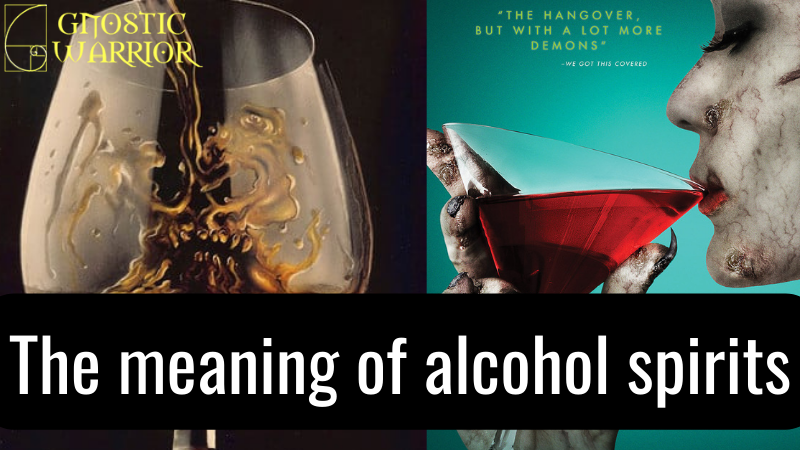
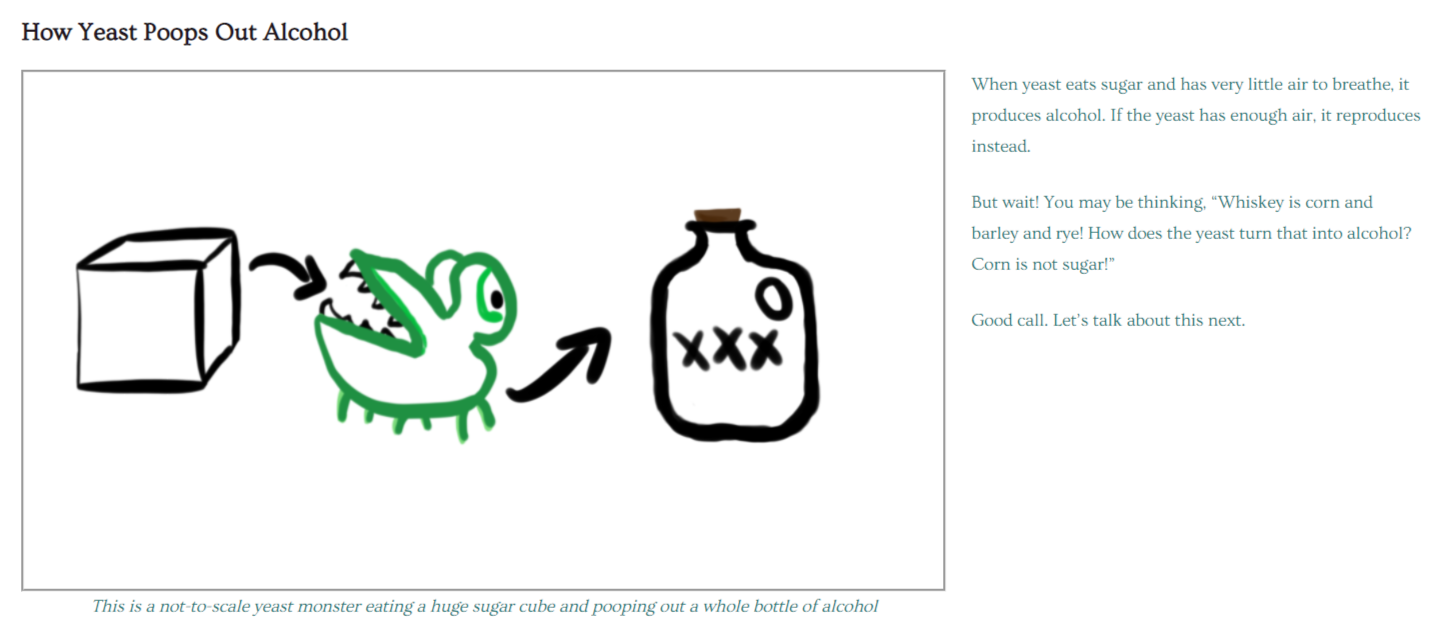

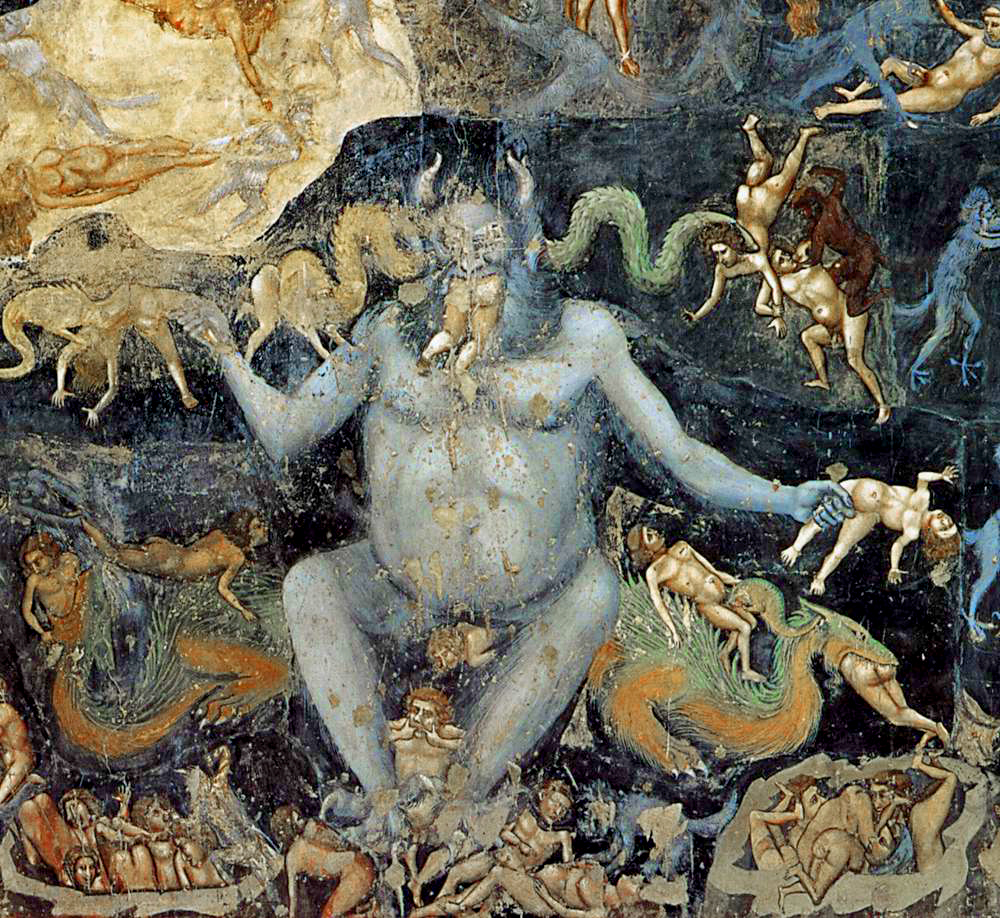
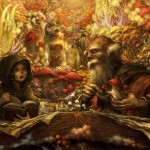
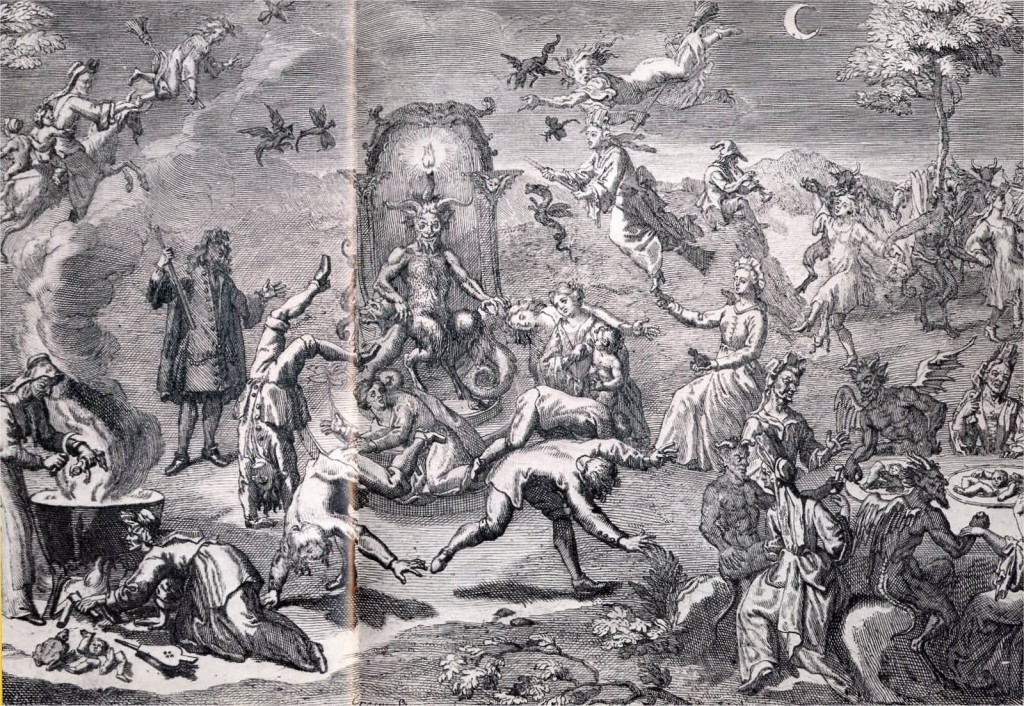

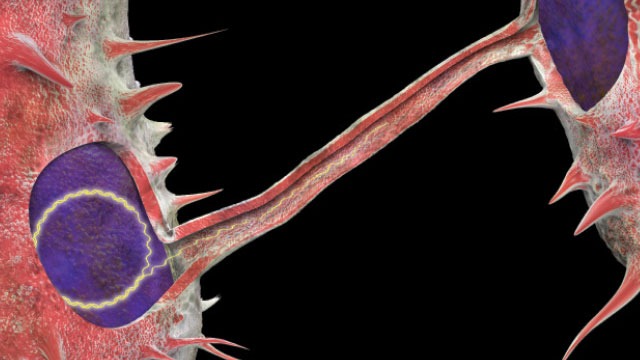
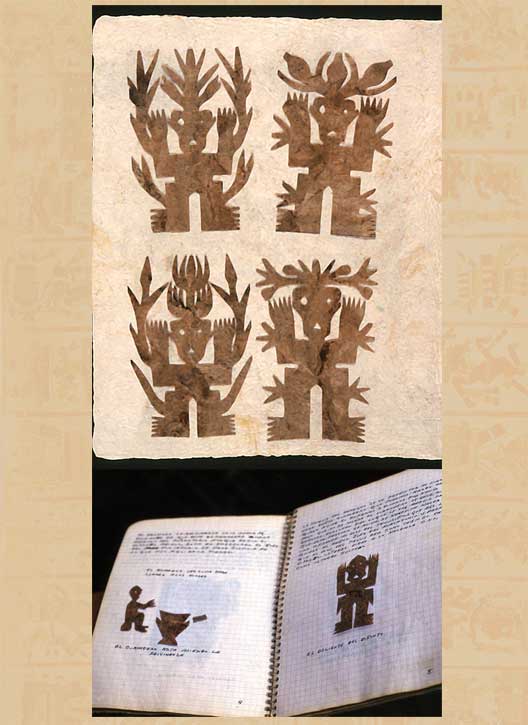
4 years into Kundalini awakening and I’ve eliminated alcohol from my life. I believe it leads to entity infection.
Hi, I have candida in my stomach, I have heard that is a fungi, sometimes I feel without strength, but I have tried to leave the wine, I am not a drunk person, but I am agree with you
Many Christian advocates of drinking alcoholic wine point to a verse in 1 Timothy. Paul says, “Drink no longer water, but use a little wine for thy stomach’s sake and thine often infirmities” (1 Tim 5:23).
Oinos, (οἶνος) or the wine of the Ancient Greeks, was a general term for several beverages that were made from grapes, of which some were fermented and others were not, that would be akin to grape juice. What we would actually call wine today was different because the Greeks normally diluted the wine with water in ratios anywhere from 20 parts water to one wine or three to one.
Drinking undiluted wine is viewed as a custom of the barbarians in ancient Greek literature.
In my opinion, they made wine to preserve it with fermentation because it would last much longer than grape juice so they could preserve their foods accordingly. Not to get drunk, but for dietary and even health purposes.
The passage above is Paul giving health advice to Timothy, who was only drinking water and having health issues.
As it turns out, Paul was right.
Today, we know that drinking only water over a period of time could cause certain health problems.
This could be because water contains no electrolytes like sodium, or possibly the water was not properly filtered and cleaned like we do today, so it was dangerous in large quantities.
For example, you can overhydrate and also have an electrolyte imbalance. Sodium is the electrolyte most affected by overhydration, leading to a condition called hyponatremia.
When its levels drop due to a high amount of water in the body, fluids get inside the cells. Then the cells swell, putting you at risk of having seizures, going into a coma, or even dying.
SOURCES:
https://www.webmd.com/diet/what-is-too-much-water-intake
Religion and Alcohol – https://www.google.com/books/edition/Religion_Alcohol/zmh_ohO1zZoC?hl=en&gbpv=1&dq=oinos+wine+ancient+greece+alcohol&pg=PA13&printsec=frontcover